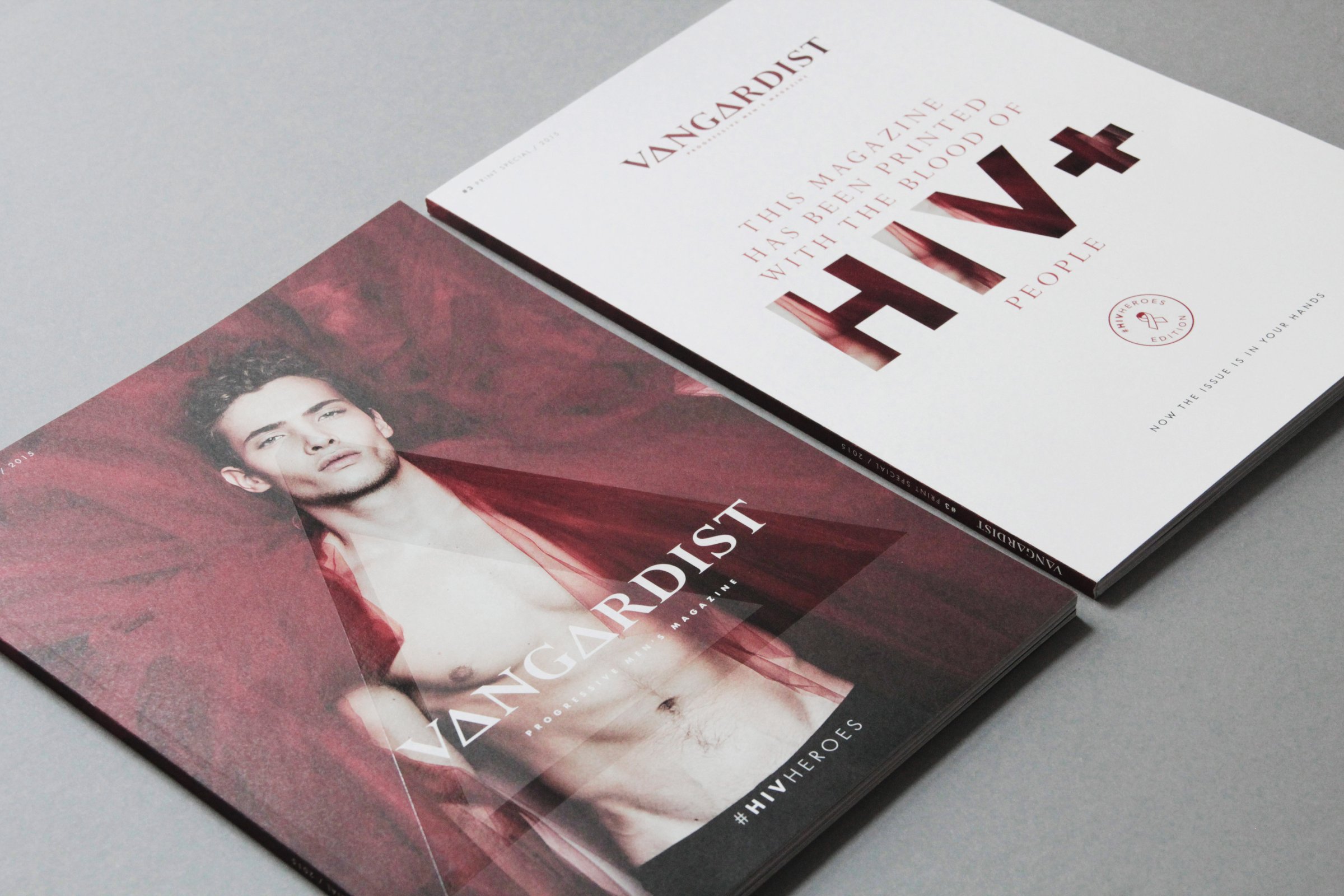
We wanted to make a statement about the stigma of being HIV-positive, so we decided to print a magazine with ink mixed with the blood of three HIV-positive donors. We’ve gotten a big reaction. Some people didn’t understand that the edition can’t harm anybody. It’s safe to handle. It stands for touching someone with HIV, hugging them, supporting them.
We decided to do this now because in Vienna on May 16, the annual Life Ball will raise awareness about HIV and AIDS. The Eurovision Song Contest will also be held in Vienna this month because Austrian singer Conchita Wurst won the contest last year. These events get a lot of international attention, so we wanted to make a statement that could reach out to the whole world.
We made 3,000 copies of the limited-edition magazine printed with the blood, available for 50 euros online. The ink is mixed with 28 parts ink to 1 part donated blood in a process that was overseen and certified as safe by doctors at Harvard University and Innsbruck University. Another 15,000 copies were printed with regular ink, available for 10 euros at stands. The edition was printed in English as well as German because we wanted people all over the world to read it. Almost all of the special-edition copies have been sold.
The entire almost 90-page magazine deals with the topic of HIV and AIDS. Stories contain those of the three donors—a mother, a homosexual man, and a heterosexual man who didn’t want to reveal his face because he was worried about the reaction.
Sharing information about HIV and AIDS is important. Some of the reactions to the campaign were negative because of misinformation. Some called us murderers. If you knew anything about the HIV, you wouldn’t call us murderers.
We need more awareness of how you get and transmit the virus. You can kiss anyone who is HIV-positive, and if you’re taking drugs like PrEP, you can have sex without a condom if you’re also medically treated well.
We have to get rid of the old image about HIV and start thinking of it as a normal disease. If you’re a mother and have a child suffering from cancer, you’re likely to tell your neighbors and ask for help. But if you have a son or daughter who is HIV positive, you might never tell people or look for assistance because of how they might look at you. Only when we’re able to talk about the disease can we move forward.
More Must-Reads from TIME
- Donald Trump Is TIME's 2024 Person of the Year
- Why We Chose Trump as Person of the Year
- Is Intermittent Fasting Good or Bad for You?
- The 100 Must-Read Books of 2024
- The 20 Best Christmas TV Episodes
- Column: If Optimism Feels Ridiculous Now, Try Hope
- The Future of Climate Action Is Trade Policy
- Merle Bombardieri Is Helping People Make the Baby Decision
Contact us at letters@time.com